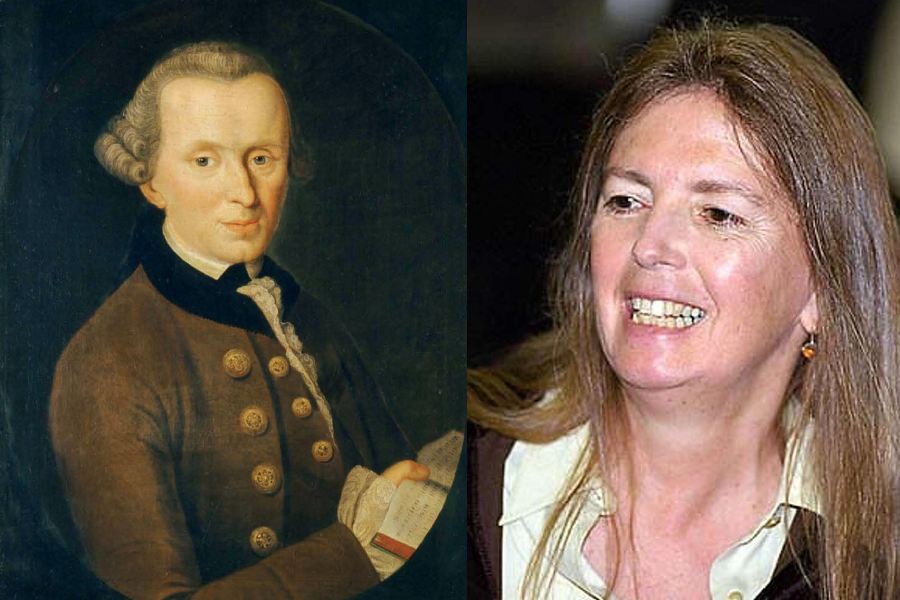The Indian Parliament recently passed the landmark women’s reservation bill, which guarantees a third of the seats in the lower House of Parliament and state assemblies for women. The bill was passed in the Lok Sabha and the Rajya Sabha during the special session of Parliament held on its new premises.
Following this historic moment, we should also focus on the women’s movement in the West and the contribution of feminist philosophers like Susan Moller Okin. Okin’s remarkable essay, “Reason and Feeling in Thinking about Justice”, exposes the various layers of discrimination against women in Western philosophy and society. She displays her expertise in identifying, approaching and dealing with archival material as she examines the politics of discrimination.
Indian women, too, need to return to theory and carefully evaluate the women’s reservation bill. The reason is twofold. First, to identify the underlying relation between texts and practices and acknowledge the contribution of feminism in the West. Second, to suggest the need to look, with an open and critical mind, at the theory and practices concerning women in Indian society.
Feminism in the West extended the modern ideals of individual rights, equality and rationality to criticise patriarchy in traditional society. It excavated and unearthed the surreptitious continuation of patriarchy in modernity and tradition. Okin’s essay takes up the challenging task of fighting against visible patriarchy in the classical philosophies and its continuation, albeit disguised, within modernity.
Okin closely examines the writings of modern philosopher, Immanuel Kant, and the continuation of his impact on contemporary philosophers like John Rawls. She uncovers the underlying architecture in these influential writings and exposes how modern philosophers like Kant based morality on rationality.
They based morality on tangible rationality, moving away from the earlier practice in metaphysics where morality was founded on transcendental aspects like Plato’s Ideals or God in Christianity. This was a significant contribution to modern morality and is recognised in mainstream scholarship as one of the achievements of modernity.
However, what Okin explores is the other side, or the extensions of these foundations, by Kant. She points out that while he has not discriminated between the sexes in his major writings, he subscribes to the gender division in his minor pieces in earlier and later works.
Okin demonstrates that while founding morality on reason, Kant excludes non-rational aspects such as feelings and emotions from its domain. He insists that “no moral principle is based… on any feeling whatsoever.” According to Kant, modern morality is based exclusively on rationality. Thus far, there is no problem.
The problem arises when he links women with non-rational feelings and emotions, associating only males with rationality, which is the foundation of morality. Women’s “philosophy is not to reason, but to sense,” Okin quotes from Kant’s Observations on the Feeling of the Beautiful and Sublime. He states that a married woman is necessarily subjected to her husband and a legal minor. “To make oneself behave like a minor,” Kant says, “degrading as it may be, is, nevertheless, very comfortable.” In a tongue-in-cheek way, Okin states, “It is not difficult to tell, from such remarks, where women stand (perhaps it is more appropriate to say ‘where women sit’) on Kant’s moral scale.”
Okin’s ingenuity lies in moving our gaze from the foundations of modern morality to its extensions. This is where the actual politics of modernity concerning women is exposed. These extensions include associating males with rationality and dissociating women from it. This disguised patriarchy has severe implications for women. While founding morality on reason is radical, excluding women from rationality and forcing them outside the domain of morality is deeply problematic.
The contribution of feminists like Okin lies in their scrutiny of the texts to identify these shocking extensions. Presenting this other picture of Kant and modernity shocked scholars of Kant and modernity.
In the context of the women’s reservation bill, Okin’s excellent philosophical work should inspire us to reflect on the dominant traditions in India and the West and to take this as a catalyst for understanding the claims and counterclaims about the status of women in India, both in text and in practice.
On the positive side, Okin does not seek parity with males by claiming that women, too, are rational. Instead, she sees virtue in moral ideals such as benevolence and parental love that are considered non-rational and excluded from the domain of morality. For children, the family is their “first [example] of human interaction,” if based on “equality and reciprocity rather than on dependence and domination,” it can shape their morality. And by extension, this can provide the basis for “larger communities within which people are supposed to develop fellow feelings for each other.”
Women in India thus need to carefully study both tradition and modernity and contribute to formulating a just social order. This is important as most of the discussions in the media are regarding the agency of making the bill a reality. Unfortunately, there is less about content and challenges before women in the changed scenario with more representation. Reading Western feminism is not to borrow or blindly imitate the West, making India its extension. While learning from the West, India must significantly modify modernity and tradition. What has been achieved is not enough, but how to take the unfinished other aspects is an open question. This also includes more significant problems such as corruption, exploitation and discrimination.
A. Raghuramaraju teaches Philosophy at the Indian Institute of Technology, Tirupati










